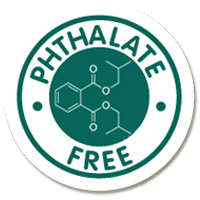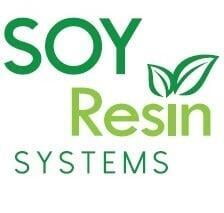FLOORING LIKE NO OTHER

DIBUTYL PHTHALATE VS. SOYPOXY
Dibutyl phthalate (DBP) is produced by the reaction of phthalic anhydride with n-butanol in the presence of concentrated sulfuric acid as a catalyst. Chronic exposure may cause damage to the liver, kidneys and testes. Dibutyl phthalate has caused developmental and reproductive effects in some laboratory animals. The relevance to humans is unknown. In animal studies Dibutyl phthalate has affected the testes, female reproductive capacity and the developing fetus. Laboratory animals exhibited testicular atrophy (male), reduced fertility in female rodents and affected fetal development. There is no conclusive data indicating Dibutyl phthalate represents a potential health risk to humans; however, some studies have linked Dibutyl phthalate and other phthalates to underdevelopment of the testes in male children and miscarriages and disruption of menstrual cycles in females. Animal studies have reported developmental effects, such as reduced fetal weight, decreased number of viable litters, and birth defects (neural tube defects) in mice exposed orally to Dibutyl phthalate. Reproductive effects, such as decreased spermatogenesis and testes weight, have also been reported in oral animal studies. The EPA has classified Dibutyl phthalate as a Group D carcinogen.
SoyPoxy contains a bio-based plasticizer that is a more efficient plasticizer/co- solvent than DBP. As a result, less is used in formulation without loss of coating performance. In addition to imparting flexibility, weatherability, UV resistance and heat resistance, SoyPoxy™ improves film flow and leveling, enhances adhesion to some substrates, improves dirt pickup resistance and acts as a freeze/thaw additive. It offers cost savings in its efficiency and in its ability to simplify formulations in that fewer raw materials are needed. It is non-migratory, extending the life of products into which it is incorporated. LIKE Dibutyl phthalate, SoyPoxy™ is resistant to acid attack and is stable for high temperature processing, making it suitable for PVC formulations. The excellent health and environmental profile of SoyPoxy™ make it an excellent alternative to epoxies with Dibutyl phthalate.
